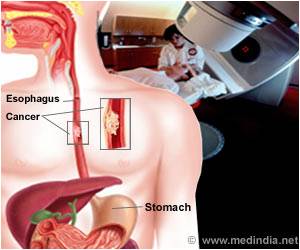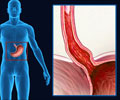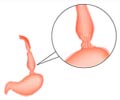DNA patterns has divided esophageal cancer into three distinct types which could make treatments more target-oriented and effective.

‘Categorizing patients based on sub-types could make targeted treatments for esophageal cancer easier and this could be the new way to tackle the disease and to help boost survival rate.’





The scientists, funded by Cancer Research UK and the Medical Research Council, looked at the complete genetic make-up of 129 esophageal cancers and were able to subdivide the disease into three distinct types based on patterns detected in the DNA of the cancer cells called signatures.Professor Rebecca Fitzgerald, lead researcher based at the MRC Cancer Unit at the University of Cambridge, said: "Our study suggests we could make changes to the way we treat esophageal cancer. Targeted treatments for the disease have so far not been successful, and this is mostly down to the lack of ways to determine which patients might benefit from different treatments. These new findings give us a greater understanding of the DNA signatures that underpin different sub-types of the disease and means we could better tailor treatment.
The first sub-type they found had faults in their DNA repair pathways. Damage to this pathway is known to increase the risk of breast, ovarian and prostate cancers. Patients with this sub-type may benefit from a new family of drugs called PARP inhibitors that kill cancer cells by exploiting this weakness in their ability to repair DNA.
The second sub-type had a higher number of DNA mistakes and more immune cells in the tumors, which suggests these patients could benefit from immunotherapy drugs already showing great promise in a number of cancer types such as skin cancer.
The final sub-type had a DNA signature that is mainly associated with the cell aging process and means this group might benefit from drugs targeting proteins on the surface of the cancer cells which make cells divide.
Advertisement
Cancer Research UK has prioritised research into esophageal cancer to increase the survival rate by bringing people together, building infrastructure and developing the next generation of research leaders.
Advertisement
Source-Medindia















